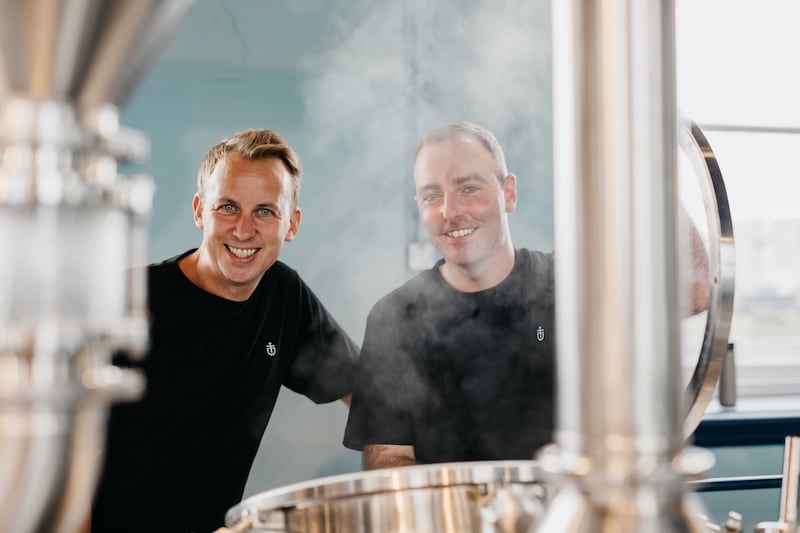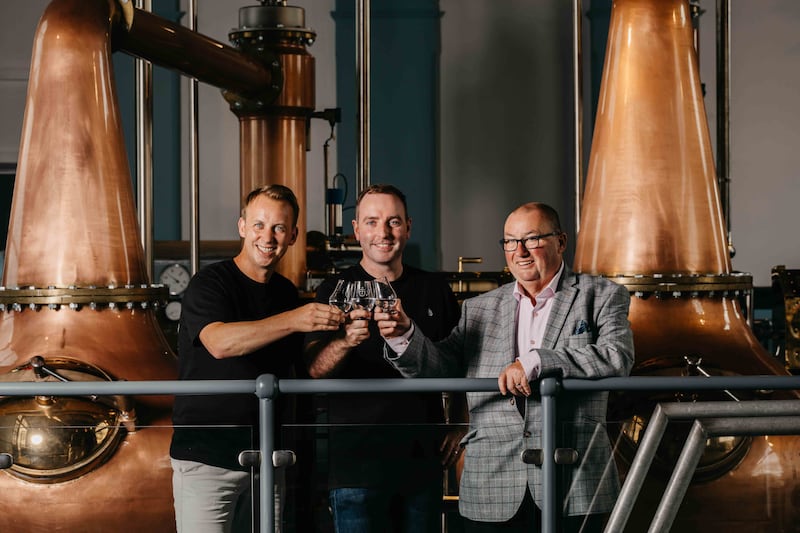IRISH whiskey production is officially back in Belfast after 88 years.
Drinks company Titanic Distillers, which has invested almost £8 million converting the historic Thompson Dock and Pumphouse in the Titanic Quarter, has finally secured a distillers license, just over four months after opening the building to tours.
It has taken the company, headed by Peter Lavery, Stephen Symington and Richard Irwin, just over five years to reach the production point.
Irish whiskey production is now under way at the distillery after the firm was last week granted its distillers license to produce spirits.
It heralds the first working whiskey distillery in Belfast since Dunville & Co stopped production in 1935.
Belfast Distillery Company, which has revived the McConnell’s brand, is also close to opening its multi-million pound distillery in a wing of the former Crumlin Road Gaol.
Over at the Titanic Quarter, Damien Rafferty is the distiller tasked with overseeing Belfast’s first legal working whiskey pot stills since the 1930s.
Read more:
- Titanic Distillers: A labour of love, sweat and years
- Recalling Belfast's 'hidden' Irish whiskey heritage
- New book explores Ireland's booming whiskey industry
- Rare Irish whiskey mecca opens in Belfast after £2 million fit-out
“We opened our doors to tourists in April this year to allow visitors to explore the distillery and the site where Titanic last rested on dry ground,” said the Newry native.
“But to finally begin production on site is an incredible feeling and a huge milestone, not just for us but for the city of Belfast.
“In many ways though, the job is only beginning as we start producing a whiskey that the people of Belfast and Northern Ireland can be proud of, and one that will represent us well all over the world.”
Titanic Distillers already has its own sourced blended Irish whiskey on the market.
But it is now working on its own in-house single malt whiskey.

Company director, Peter Lavery, described it as a momentous occasion.
“It’s been quite a journey over the past five years but we are thrilled to get our license and to start producing our own spirits on site,” he said.
”Whiskey has played an important part in the history of our city but there hasn’t been a working distillery here since the 1930s, so, as a Belfast boy, it really means a lot to me to revive this great distilling tradition – and help bring Belfast back to the forefront of Irish Whiskey production.”
The Thompson Dry Dock first opened in 1911 to service and accommodate the huge White Star transatlantic liners Olympic and Titanic.
Much of the original pump equipment and associated internal historic features in the adjacent pumphouse have been retained.

Director Stephen Symington said the multi-year project has been a real labour of love for all concerned.
“Our ambition, from the outset, has always been to embrace the history of our distillery’s location to create a unique product and visitor experience, immersed in the spirit of Belfast’s industrial and maritime past and inspired by the people who worked in Belfast’s shipyard more than a century ago.
“However, outside of the site’s massive tourism appeal and historic significance, it is important to recognise that, from this moment forward, we are now a working distillery in which we will be producing our own products to build on our success to date and make the most of the growing global demand for Irish whiskey.”






